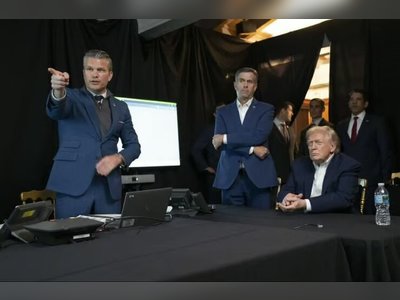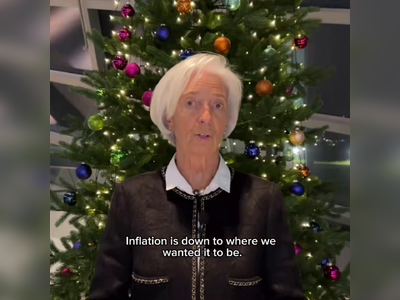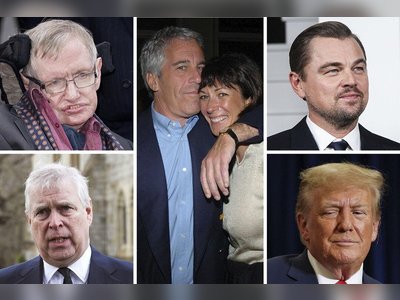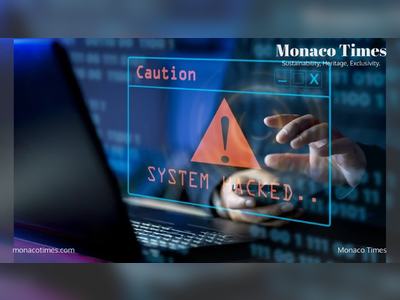Global Economic Uncertainty Grows Amid Escalating US-China Trade War
President Trump enacts sweeping tariffs, triggering international responses and market turmoil.
On April 2, 2025, President Donald Trump signed an executive order imposing a global tariff of 10% on all imports to the United States, introducing higher rates for specific countries deemed to engage in 'non-reciprocal' trade practices.
The measure includes 'reciprocal tariffs' that could reach up to 50% for 57 countries identified as having significant trade barriers against American goods.
This protectionist policy has been framed by the White House as a response to persistent US trade deficits and a decline in national industrial competitiveness.
In addition to the general tariffs, specific duties have been set on critical products such as steel, aluminum, automobiles, and their parts, with a 25% tariff on these goods in effect since March 2025. In an effort to avert a trade war, the European Union proposed on April 7, 2025, a total and reciprocal exemption of tariffs for industrial products to the United States.
International reactions have been swift and varied.
Ursula von der Leyen, President of the European Commission, characterized the tariffs as a 'major blow to the global economy.' The EU is reportedly preparing countermeasures, including targeted taxes on American technology companies.
China responded by increasing its own tariffs on American products by 34%, implementing restrictions on rare earth exports, and adding several American companies to its list of unreliable entities.
Canada and Mexico have also retaliated, with Canada targeting $20 billion worth of American imports with 25% tariffs, despite certain exemptions under the USMCA agreement.
Japan, Australia, and South Korea have expressed concern while seeking negotiations with Washington to minimize economic fallout.
Japanese Prime Minister Shigeru Ishiba announced plans to present measures aimed at alleviating tariffs, indicating that Japan is seeking dialogue just prior to a possible call with Trump.
The head of Japan's business federation, Masakazu Tokura, emphasized the historical importance of free trade since World War II, pointing towards the United States as a driving force behind this system.
The economic consequences of these tariffs are anticipated to be significant.
JPMorgan Chase CEO Jamie Dimon warned that the tariffs would likely increase inflation and slow growth in the United States.
He noted that the new tariffs could raise the average cost of imported goods, potentially adding up to 2% to the consumer price index in 2025, translating to a mean loss of purchasing power of $3,800 per household.
Furthermore, estimates from the International Monetary Fund (IMF) suggest that these measures could reduce global GDP by 0.5% by 2030, with the US and China expected to incur declines of approximately 1.3% in their respective GDPs.
As a result of these developments, global financial markets experienced significant turmoil.
On April 7, 2025, European markets saw a historic drop, with Frankfurt falling by 4.15% and Paris by 4.47%.
These indices were heading towards their worst performances since March 2020 at the onset of the COVID-19 pandemic.
Following these trends, Wall Street faced a projected sharp decline, with over $6 trillion in market capitalization lost in just two days, according to the Dow Jones US Total Stock Market index.
In Asia, the reaction was even more severe, especially after China announced its retaliatory tariffs.
The Hong Kong stock market dropped by 13.22%, its most significant decline since the Asian financial crisis of 1997, while Shanghai fell by 7.34% and Shenzhen by 9.66%, marking their worst sessions since March 2020. Seoul and Sydney recorded declines of 5.57% and 4.2%, respectively, while Tokyo experienced a downturn of 7.83%.
In response to the escalating tensions, China has asserted its commitment to being a 'safe haven' for foreign investment, despite the ongoing trade conflict.
Measures such as export controls on rare earth elements including gadolinium and yttrium have been implemented.
China's Vice Minister of Commerce, Ling Ji, stated that the countermeasures aim to protect the legitimate rights and interests of companies, including American firms operating in China, and to encourage the US to adhere to multilateral trade systems.
Furthermore, Chinese officials criticized the US for undermining international trade standards and practicing unilateral economic intimidation.
The measure includes 'reciprocal tariffs' that could reach up to 50% for 57 countries identified as having significant trade barriers against American goods.
This protectionist policy has been framed by the White House as a response to persistent US trade deficits and a decline in national industrial competitiveness.
In addition to the general tariffs, specific duties have been set on critical products such as steel, aluminum, automobiles, and their parts, with a 25% tariff on these goods in effect since March 2025. In an effort to avert a trade war, the European Union proposed on April 7, 2025, a total and reciprocal exemption of tariffs for industrial products to the United States.
International reactions have been swift and varied.
Ursula von der Leyen, President of the European Commission, characterized the tariffs as a 'major blow to the global economy.' The EU is reportedly preparing countermeasures, including targeted taxes on American technology companies.
China responded by increasing its own tariffs on American products by 34%, implementing restrictions on rare earth exports, and adding several American companies to its list of unreliable entities.
Canada and Mexico have also retaliated, with Canada targeting $20 billion worth of American imports with 25% tariffs, despite certain exemptions under the USMCA agreement.
Japan, Australia, and South Korea have expressed concern while seeking negotiations with Washington to minimize economic fallout.
Japanese Prime Minister Shigeru Ishiba announced plans to present measures aimed at alleviating tariffs, indicating that Japan is seeking dialogue just prior to a possible call with Trump.
The head of Japan's business federation, Masakazu Tokura, emphasized the historical importance of free trade since World War II, pointing towards the United States as a driving force behind this system.
The economic consequences of these tariffs are anticipated to be significant.
JPMorgan Chase CEO Jamie Dimon warned that the tariffs would likely increase inflation and slow growth in the United States.
He noted that the new tariffs could raise the average cost of imported goods, potentially adding up to 2% to the consumer price index in 2025, translating to a mean loss of purchasing power of $3,800 per household.
Furthermore, estimates from the International Monetary Fund (IMF) suggest that these measures could reduce global GDP by 0.5% by 2030, with the US and China expected to incur declines of approximately 1.3% in their respective GDPs.
As a result of these developments, global financial markets experienced significant turmoil.
On April 7, 2025, European markets saw a historic drop, with Frankfurt falling by 4.15% and Paris by 4.47%.
These indices were heading towards their worst performances since March 2020 at the onset of the COVID-19 pandemic.
Following these trends, Wall Street faced a projected sharp decline, with over $6 trillion in market capitalization lost in just two days, according to the Dow Jones US Total Stock Market index.
In Asia, the reaction was even more severe, especially after China announced its retaliatory tariffs.
The Hong Kong stock market dropped by 13.22%, its most significant decline since the Asian financial crisis of 1997, while Shanghai fell by 7.34% and Shenzhen by 9.66%, marking their worst sessions since March 2020. Seoul and Sydney recorded declines of 5.57% and 4.2%, respectively, while Tokyo experienced a downturn of 7.83%.
In response to the escalating tensions, China has asserted its commitment to being a 'safe haven' for foreign investment, despite the ongoing trade conflict.
Measures such as export controls on rare earth elements including gadolinium and yttrium have been implemented.
China's Vice Minister of Commerce, Ling Ji, stated that the countermeasures aim to protect the legitimate rights and interests of companies, including American firms operating in China, and to encourage the US to adhere to multilateral trade systems.
Furthermore, Chinese officials criticized the US for undermining international trade standards and practicing unilateral economic intimidation.











